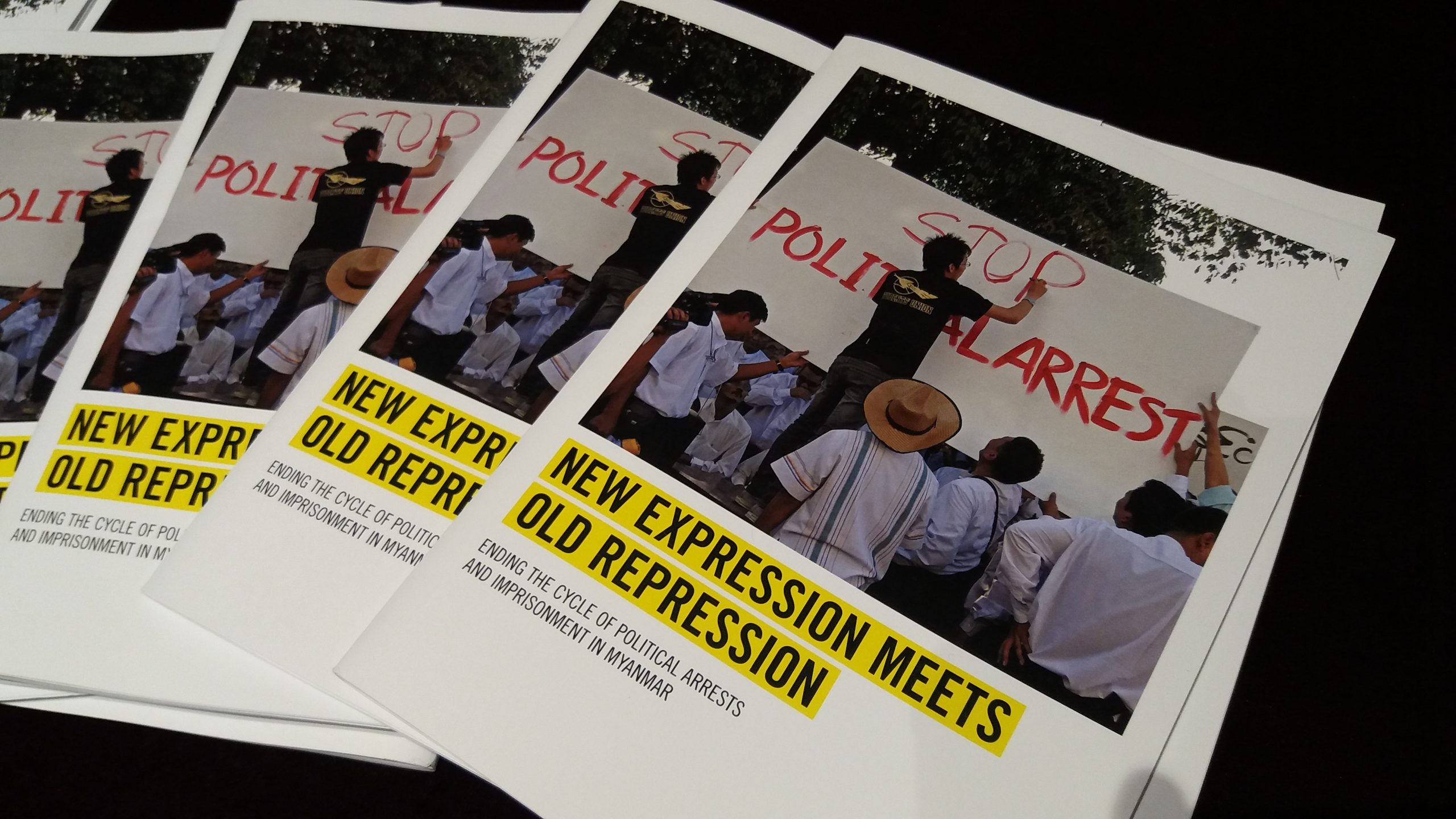A new report from Amnesty International calls on Burma’s incoming government to break the “vicious cycle of political arrests” targeting activists and human-rights defenders across the country.
The report, entitled “New Expression Meets Old Repression,” is based on interviews with a wide variety of participants in civil society, including journalists, student activists and labour organizers.
Detailing how the nation’s laws–including some dating back to the British colonial government and others passed by the former junta–have been used to stifle freedom of expression, the report calls on the incoming National League for Democracy (NLD) to enshrine basic rights.
While the quasi-civilian administration of Thein Sein initially brought a raft of new freedoms to the media and public life, the report says these gains were short lived.
“The last two years have seen the space for the newly found freedoms shrink alarmingly,” said Laura Haigh, a Rangoon-based researcher with Amnesty International.
“Even since the November elections there have been new arrests and charges against peaceful activists. This has to stop,” she said. “The change of government represents an important opportunity to chart a new course on human rights, and to halt the worrying regression back to the old tactics of locking up critics and dissenters.”
The report highlights many high-profile prosecutions, such as the seven-year prison sentences handed to journalists from the Unity newspaper for violating the colonial-era Official Secrets Act, and the criminal charges of causing “public fear and alarm” laid against Rangoon activist Htin Kyaw for distributing leaflets criticizing a local MP.
While the report focuses it recommendations mainly on the NLD, the authors acknowledge that the much of the necessary reform depends on Burma’s politically powerful armed forces.
“[The military] will continue to wield considerable power–in particular over key institutions like the police, which play a significant role in the arrest and imprisonment of activists,” said Haig.
[related]
However, she added that Burma’s generals are no longer as impervious to outside influence as they would have been during the country’s half-century era of military rule.
“We also know that the military is susceptible to international pressure, and that they are keen to show the world that the reforms in [Burma] are genuine.”



